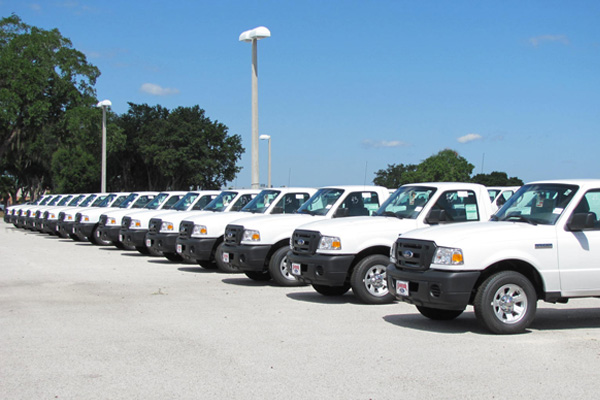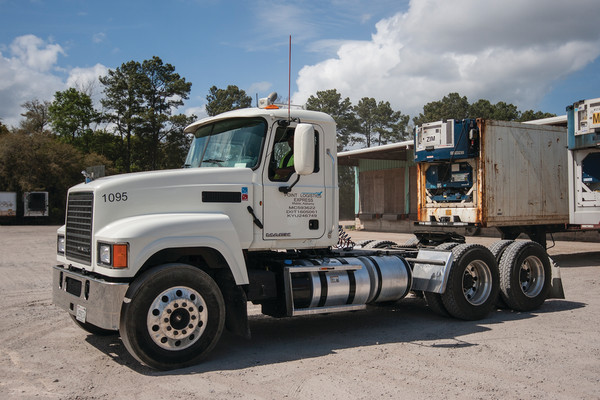If you have a business that requires certain vehicles to be in certain locations at certain times and care for the large customer base you’ve spent multiple years building, then you need a fleet management solution to aid your business expansion. Legally, anyone who operates a business with vehicles for delivery or used for service calls carry a multicar insurance policy, called fleet insurance. However, notwithstanding the legalities, investing in this comprehensive company car insurance policy has advantages for your business, and can provide solace to your drivers who hit the pavement each day for your service calls.
Upon the successful launch of your mobile-based business, no matter if you’re offering maid services, tech support or delivering pizzas, fleet insurance immediately needs to be sought after before a sales call is even made. Company car insurance comes in many formats while offering many different coverage options that will require you to probe before purchasing and weigh each option carefully. During your research into various fleet insurance carriers, businesses have a different set of needs and, therefore, have entirely different fleet needs to address, mainly:
• Much like individual auto insurance policies, multicar insurance comes with safe driver discounts that are based both off the main policyholder’s and each driver’s personal driving records. Don’t leave the insurance office without these discounts.
• Each individual driver does not have to be named on the policy; however, those who you hire to drive must meet certain local DOT requirements if driving passengers, hauling certain types of goods, and need bonding included with your fleet insurance if transporting currency.
• Commercial fleet insurance can be obtained with moderate liability limits for those whom are self-employed yet need the multicar insurance coverage.
• Exercise due diligence in finding the best company car insurance ratings, use the information found in A.M. Best, S&P and Moody’s Investor Services as these historically will be the most up-to-date on each company’s credit grade and total assets.
Your business cannot afford to lack in coverage areas or carry astronomically high deductibles. Take the extra time to do homework on the companies that pique your interest and gather data from the above research firms. When you’ve narrowed down your search to one or two companies then proceed to make an office visit to get all of your questions answered and to receive your free quotation for fleet insurance.
How More Multicar Insurance Means Less Cost
If you’ve ever had a conversation with a cabbie about driving for their cab company and their overall insurance costs and limits, you’d find out some rather strange even unsettling information that may deter you from even seeking company car insurance. However, do not gauge the needs of your company with the needs of a company which transports human passengers around thousands of times a day. Fleet insurance comes in multiple forms, is priced in multiple ways, and will almost never apply to the same company across the board. So, how can something meant for multiple automobiles actually save money in the long run? Logically, you’d presume that more vehicles to cover would mean higher multicar insurance costs per annum. That’s not necessarily the case, as you’ll see, because there is colossal strength in numbers for companies seeking fleet insurance.
Case in point: Imagine if you operated a business that dispatched tech support workers to other businesses or homes to fix network issues, clean up viruses, or assist with data backup. On a daily basis, you send each worker to various locations using their personal vehicles, paying them a per diem for gas. One day, a worker wraps himself around a telephone pole and receives paralyzing injuries which results in a huge lawsuit on your hands. The driver, you find out, was mildly insured. Now, instead of growing your business, you are digging into your personal pockets, the pockets of investors, and cleaning out your business bank account to settle out of court. This scenario can break the back of your business.
Had you simply taken the time to investigate your fleet insurance options, this situation would have remedied itself and not been a problem in the first place if you had a corresponding insurance plan in place that would have covered medical care. Sure, your premiums would probably go up; that could be offset by hiking the COGS (cost of goods sold) by perhaps a buck or two. Now, imagine if the rare (but known to happen) occurrence transpired with two tech workers in the same day. Instead of closing just the business, you’re may face the real possibility of taking out the mortgage on your house to pay for this.
This scenario showcases and exemplifies why the proper fleet insurance plan is the difference between keeping you in or out of business. Nine times out of ten, you’ll see drastic savings by purchasing your own fleet of cars and insuring them as opposed to sending your workers off in their own cars. Multicar insurance will save your business, safeguard your employees while in transit, and give you peace of mind that anything accidental can be covered should the unfortunate even take place.
Summary
Fleet insurance is your business solution tailored to work for any business that transports goods, makes house calls, or hauls passengers around town. While specific amounts will never be the same across the board, you simply cannot operate a mobile business without protection for your employees. When you dispatch them to work in their personal cars, you increase the chance that you’ll put your business in position to defend against lawsuit litigation should an employee injure themselves while on your clock.
Finally, when you are shopping for company car insurance, you’ll find there is great strength in numbers in terms of long-term savings ability as paying for a multicar insurance policy and six vehicles will surely be less expensive than liability suits. Make the logical choice and take out a comprehensive company car insurance policy to keep your business moving forward while promoting safety from within.





